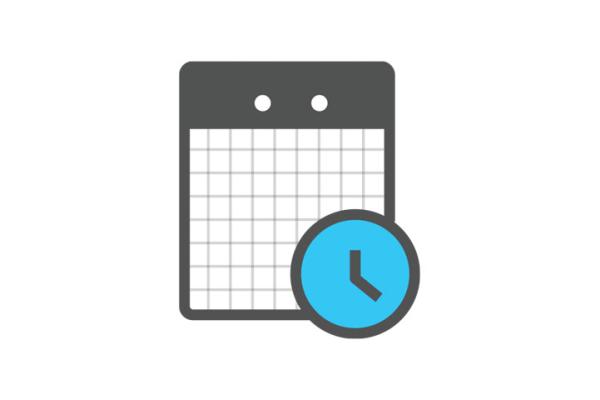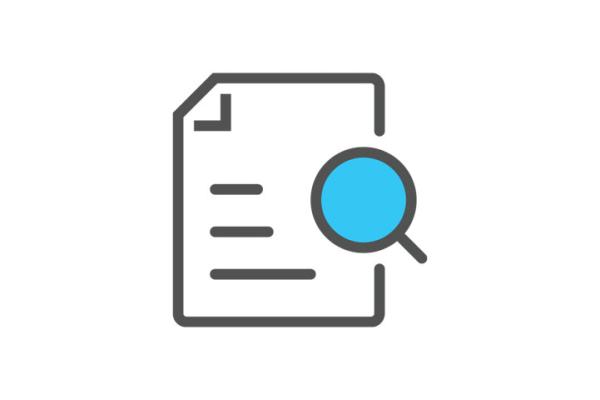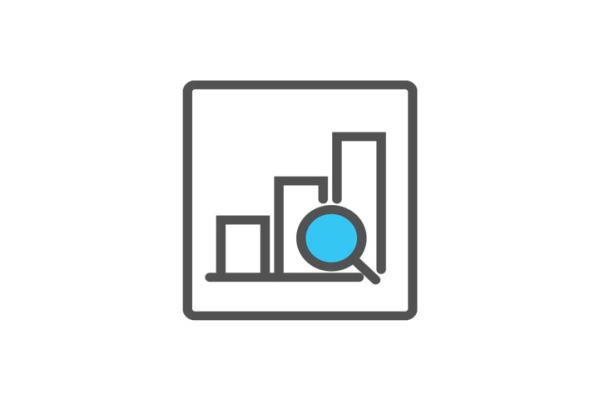EU comprehensive approach to mental health
In her 2022 State of the Union speech, Commission President Ursula von der Leyen announced the Commission’s intention to present “a new initiative on mental health” in 2023.
On 7 June 2023, the Commission adopted the Communication on a comprehensive approach to mental health, which will help Member States and stakeholders to take swift action to deal with mental health challenges.
The Communication is a starting point for a new approach. A comprehensive, prevention-oriented and multi-stakeholder approach to mental health has been developed after extensive consultation with Member States, stakeholders and citizens.
The new approach recognises that mental health strongly involves many policy areas, such as employment, education, research, digitalisation, urban planning, culture, environment and climate. This cross-sectoral approach aims to put physical health on par with mental health.
The initiative builds on existing policies, approaches and actions. The Communication’s 20 flagships – with financing opportunities worth EUR 1.23 billion – will directly and indirectly support Member States in achieving a comprehensive approach to mental health.
On the occasion of the 2024 European Mental Health week, the Commission has published the tracking framework of the Communication on a comprehensive approach to mental health.
The implementation of this approach is based on concrete actions benefitting citizens and health systems at country level, led by national authorities and stakeholders, with coordination and horizontal support by the Commission, in collaboration with international partners such as the World Health Organization (WHO), the Organisation for Economic Cooperation and Development (OECD), the International Red Cross and Red Crescent and UNICEF.
The tracking framework allows for regular updates on implementing the actions stemming from the Communication on a comprehensive approach to mental health.
Mental health situation in Europe
The 2023 edition of the Country Health Profiles report prepared in the context of the State of Health in the EU by the Organization for Economic Co-operation and Development (OECD) and the European Observatory on Health Systems and Policies (Observatory), introduced a snapshot of the mental health situation in all EU Member States, Norway and Iceland.
Worries, anxieties and feelings of depression caused by the devastating effects of the pandemic, Russia’s war of aggression against Ukraine, climate change and loss of biodiversity, unemployment and rising living costs, the pressures of the digital sphere and social media, all have exacerbated the already poor levels of mental health, especially for children and young people.
There is an unequal distribution of mental health problems between population groups, with depression being more prevalent among women and in population groups with lower income and education levels.
The need for action was emphasised in a recent Eurobarometer survey on mental health (October 2023). The survey showed that 46% of Europeans experienced an emotional or psychosocial problem, such as feeling depressed or anxious, in the past twelve months.
One out of every two individuals dealing with a mental health issue did not seek assistance from a professional.
Already before the COVID-19 pandemic, 1 in 6 people in the EU suffered from mental health issues, at a cost of 4% of GDP.
The total costs of mental health problems are estimated at more than 4% of GDP (more than €600 billion) across the 27 EU countries and the United Kingdom (Health at a Glance Europe 2018 report).
The 2022 Health at a Glance report showed that almost one in two young Europeans report unmet needs for mental health care, and the share of young people reporting symptoms of depression in several EU countries more than doubled during the pandemic.
Therefore, there is a need for continuing investment in mental healthcare and health systems reforms, including the mental health workforce, and for breaking the stigma and discrimination surrounding mental health.
The magnitude of the current challenges warrants further action to prevent permanent scars on the younger generations.
This requires a shift in prioritisation towards prevention, including addressing behavioural risk factors and social, environmental, and commercial determinants and implementing concrete and ambitious initiatives for mental health promotion and prevention of mental illness.
This will help us to reach the UN Sustainable Development Goals and the WHO targets on non-communicable diseases.
Overview of actions on mental health
Mental health is a priority for the Commission, which has supported actions and projects over the past 25 years to improve people’s mental health.
Overview of current actions and tools:
1. Best and promising practices
The European Commission’s Best Practice Portal facilitates the collection, exchange and implementation of best and promising practices among EU Member States.
In 2018, EU Member States prioritised mental health as the area for best practice implementation.
In 2019, a pre-selection of best practices was presented to the member states, who then ranked them according to their national priorities.
From the three highest-ranked practices, two initiatives are currently being implemented with financial support via the Third Health Programme’s Annual Work Plan for 2020.
The Joint Action ImpleMENTAL is rolling out the Belgian mental health system reform, which focuses on strengthening client-centred, community-based services and the Austrian multi-level suicide prevention programme.
This action brings 21 Member States together and is supported by a financial contribution of EUR 5.4 million.
The WHO Regional Office for Europe supports ImpleMENTAL’s training and capacity-building efforts under a contribution agreement towards mental health across policies approach, valued EUR 11 million under the EU4Health 2022 work programme.
A programme encompassing the implementation of the iFightDepression tool for self-management of mild to moderate depression is being implemented via the European Alliance Against Depression-Best project.
10 Member States are currently involved in this project supported by an EC financial contribution of €1.6 million.
As regards the specific needs of children and young people, Icehearts Europe and Let’s Talk About Children, target the improvement of mental health and wellbeing of young people.
A call for best and promising practices on mental health was launched in July 2023. 29 practices were identified as best or promising. These practices are available on the EU Repository of Mental Health Best and Promising Practices of the European Commission’s Best Practice Portal.
An online marketplace event took place on 11-13 March 2024, during which the owners of these 29 practices presented them in detail to the EU Member States representatives interested in transfering them to their respective countries.
2. ‘Healthier Together’ initiative
A comprehensive approach to mental health is also supported by Healthier Together - the Commission’s EU Non-Communicable Diseases Initiative presented in June 2022.
This initiative supports Member States in identifying and implementing:
- effective policies and actions to reduce the burden of major non-communicable diseases (NCDs)
- improve citizens’ health and well-being
- reduce health inequalities.
‘Mental health and neurological disorders’ form one of the five key strands this initiative addresses.
Following a co-creation process with Member States and stakeholders, the initiative supports the implementation of high-impact actions across the entire spectrum, from encouraging well-being and proactive prevention to the social inclusion of people with long-term conditions.
The initiative’s work on mental health will cluster around four priority areas:
- Supporting favourable conditions for mental health and increasing resilience, implementing mental-health-in-all policies
- Promoting mental well-being and preventing mental health disorders
- Improving timely and equitable access to high-quality mental health services
- Protecting rights, enhancing social inclusion, and tackling the stigma associated with mental health problems
Action on these areas is already ongoing and will continue until 2027.
3. Capacity building and training on mental health
To support national actions on mental health, the Commission set up projects with the WHO and the OECD to provide tailor-made support for each Member State via technical assistance and capacity-building in transferring and implementing best practices on mental health.
The EU-PROMENS project, which started in January 2024, will offer multi-disciplinary training on mental health for health professionals, teachers, educators, and social workers.
Additionally, it will offer exchange programmes for mental health professionals. This training and exchange programme is funded under the EU4Health programme with an EU contribution of EUR 9 million.
4. Fighting stigma and discrimination
To support the Member States in tackling stigma and discrimination on mental health, the Commission set up a drafting group on stigma and discrimination under the mental health subgroup of the Expert Group on Public Health.
This drafting group is engaged in developing EU guidance on stigma and discrimination related to mental health.
Funding of mental health projects
The Commission provides financial support under the EU4Health annual work programmes to Member States and stakeholders to implement activities to prevent and manage mental health.
More than EUR 30 million has already been allocated to projects addressing public health aspects of mental health in the past three years, including mental health system reform.
Under the EU4Health 2023 work programme, funding of EUR 18.5 million has been made available to provide support in promoting mental health and preventing mental health problems:
- EUR 6 million to Member States’ authorities to collaborate in a joint action to address mental health challenges.
- EUR 4.5 million for stakeholders to support projects related to mental health promotion, prevention and management of mental health problems.
Both actions will focus their activities on vulnerable groups such as migrants, refugees, Roma people and people displaced from Ukraine.
- EUR 8 million has been allocated to projects that aim to address mental health challenges in cancer patients and survivors and their carers and families.
Financial support will also be provided via the EU4Health 2024 work programme for Member States to work together in a joint action on promoting a comprehensive, prevention-oriented approach to mental health to support vulnerable groups (EUR 6 million).
An additional EUR 2 million will be available to stakeholders to implement projects supporting the efforts of the Member States in promoting mental health.
These EU-funded projects are managed by the European Health and Digital Executive Agency (HaDEA).
Governance
The Commission works closely with Member States and stakeholders to promote good mental health and prevent mental ill-health.
Cooperation and exchange with Member States take place within the mental health sub-group of the Public Health Expert Group. Its members continue to advise the Commission in implementing flagship initiatives.
This subgroup also informs the Commission on the national implementation of relevant actions related to the comprehensive approach and other mental health-related actions.
Regular interaction and cooperation with all key stakeholders take place via a dedicated network on mental health at the EU Health Policy Platform.
The stakeholder network – Mental Health in All Policies – is led by Mental Health Europe and is open to stakeholders within and beyond the health sector to share knowledge and provide policy recommendations.
Supporting Ukraine – mental health of displaced people and refugees
Refugees and displaced persons, notably those fleeing from war – such as displaced people from Ukraine – need mental health support and early responses to reduce distress.
The Commission has mobilised EUR 31.2 million from the EU4Health programme to help displaced people from Ukraine in urgent need of mental health and trauma support.
More specifically, a contribution agreement has been signed with the International Federation of Red Cross to help displaced people from Ukraine deal with the trauma they have suffered and offer them mental health support.
In addition, stakeholders with an EU contribution of EUR 3 million are implementing four projects:
- MESUR,
- Peace of Mind,
- Well-U,
- U-Rise
These projects aim to provide mental health support to displaced people from Ukraine and to improve mental health and psychological well-being in migrant and refugee populations.
In addition, the Commission offers a range of online courses and other training material on migrant health via the websites of:
- the ECDC’s Virtual Academy
- the network Migration and health: training for professionals on the Health Policy Platform.
These courses were developed with the support of the Third Health Programme.
Mental health and COVID-19
The pandemic and its aftermath increased the burden on the mental health services.
The Health at a Glance Europe 2020 report noted that the COVID-19 pandemic and the subsequent economic crisis caused a growing burden on the mental well-being of the citizens, with evidence of higher rates of stress, anxiety and depression.
Young people and people in lower-income groups are considered at increased risk.
Disruptions to health care for those with pre-existing mental health conditions constitute a significant part of the negative impact that the pandemic had on mental health.
A few months after the onset of the pandemic, the department for Health and Food Safety set up a dedicated network space on its Health Policy Platform for health and social stakeholder organisations to exchange specific mental health practices and knowledge related to COVID-19.
This virtual network and library, which Mental Health Europe, co-ordinated, focused on the needs of vulnerable groups such as the homeless, people with pre-existing conditions, and older people.
The EU has provided financial support of EUR 750 000 under the EU4Health 2021 work programme for the implementation of best practices on the ground with a direct impact on the effort to tackle mental health challenges during COVID-19.
Two projects – MENTALITY and STEP-IN are working on raising awareness of the effects that the COVID-19 pandemic has had on vulnerable communities and on implementing best practices to support them.
The Commission rewarded community-based initiatives alleviating the mental health impact of COVID-19 via its 2021 EU Health award.
The award ceremony took place on May 4, 2022: prize-winning and shortlisted initiatives are presented in a booklet awarded initiatives on the mental health impact of COVID-19.






